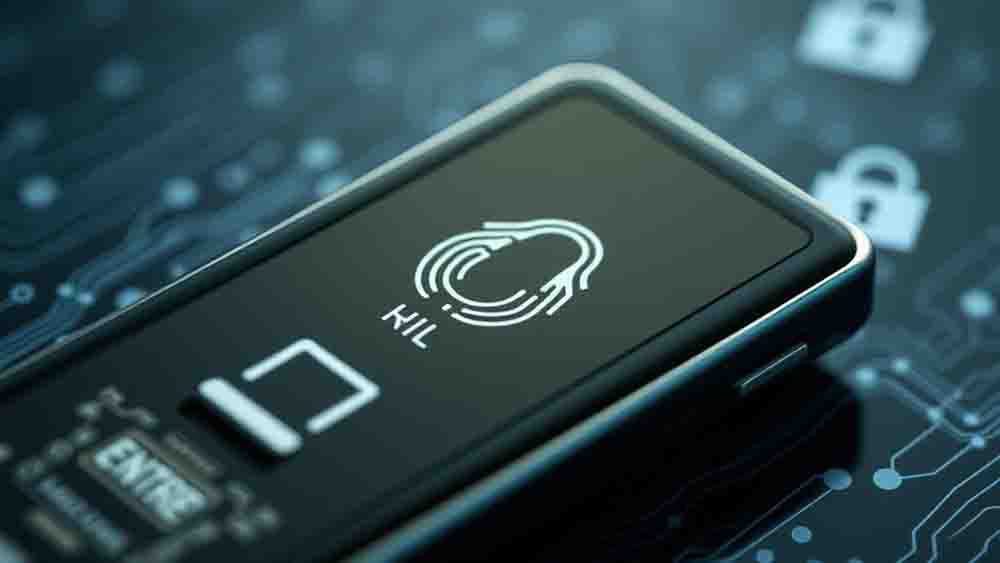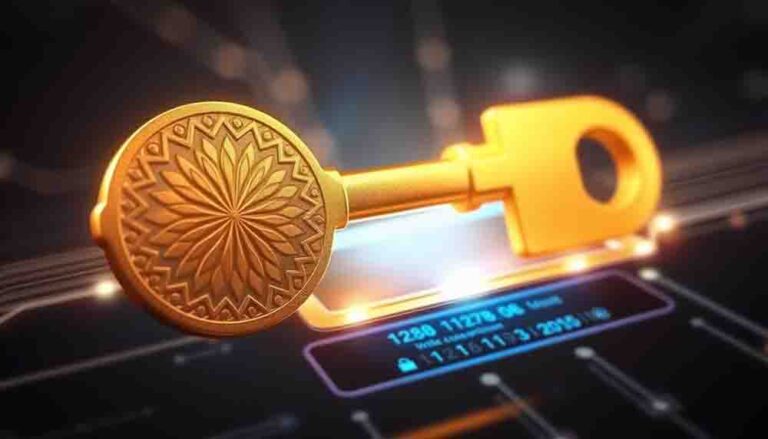What Are the Best Crypto Wallets for Newbies?
Note: This post may contain affiliate links, and we may earn a commission (with No additional cost for you) if you make a purchase via our link. See our disclosure for more info. The crypto world is constantly changing. This content is for informational purposes only and not financial, legal, or professional advice So, please verify the info on the cryptocurrency provider’s websites.
Click below and listen to the podcast about this page.
You might find picking a crypto wallet overwhelming. But, it's now easier than ever for beginners to get started. You don't need to be a tech expert to find a user-friendly option that suits your needs. As a crypto newbie, you'll want to focus on wallets that offer a balance of security, simplicity, and functionality. The right choice can make your entry into the world of digital assets smooth and stress-free. But before you jump in, consider a few key factors. They will help you make the best choice for your crypto journey.
Key Takeaways
- Coinbase Wallet offers a user-friendly interface, supports numerous assets, and provides staking options for beginners.
- Trust Wallet, with over 70 million users, includes a built-in DEX and supports multiple cryptocurrencies.
- MetaMask is excellent for those interested in Ethereum and ERC-20 tokens, with a focus on decentralized applications.
- Exodus Wallet provides a sleek design, supports 100+ cryptocurrencies, and includes educational resources for new users.
- Mobile wallets like Coinbase and Trust offer convenience for daily transactions, while desktop options provide additional features.
Understanding Crypto Wallet Basics
Anyone venturing into the world of cryptocurrencies needs to understand the basics of crypto wallets. These digital tools are fundamental for storing and managing your digital assets securely. Think of them as your personal bank account for cryptocurrencies, holding the public and private keys necessary for transactions.
Crypto wallets come in two main types: hot wallets and cold wallets. Hot wallets are connected to the internet, offering convenience for frequent transactions. Cold wallets, on the other hand, are offline storage solutions that provide enhanced security for long-term holdings.
For beginners, it's vital to understand the concept of a non-custodial wallet, which allows you to maintain control over your private keys.
When choosing a wallet, consider the following factors:
- Number of supported cryptocurrencies
- Ease of use
- Security features
Popular options for newcomers include Coinbase Wallet, which supports a vast array of assets and offers staking capabilities, and MetaMask, known for its user-friendly interface for Ethereum-based tokens.
Both provide critical security features like multi-factor authentication and recovery backups. By selecting the right wallet, you'll guarantee a smooth and secure entry into the world of cryptocurrencies.
Hot Vs Cold Wallets
When choosing between hot and cold wallets, you'll need to weigh security against accessibility.
Hot wallets offer convenience for frequent transactions but are more vulnerable to cyber threats, while cold wallets provide enhanced security by storing your private keys offline.
You'll find that hot wallets are typically user-friendly and free, making them suitable for beginners.
However, cold wallets, despite requiring an upfront purchase, offer better protection for long-term investments.
Security Trade-Offs
Choosing between hot and cold wallets comes down to balancing convenience against security. Hot wallets offer user-friendly interfaces and quick access to your crypto assets, making them ideal for frequent transactions. However, they're more vulnerable to online threats. Cold wallets, on the other hand, provide enhanced security for long-term storage but may be less convenient for day-to-day use.
Consider these key trade-offs:
| Feature | Hot Wallets | Cold Wallets |
|---|---|---|
| Accessibility | Internet-connected | Offline |
| Security | Vulnerable to hacking | Enhanced protection |
| Convenience | High | Lower |
| Control | Limited key control | Non-custodial |
| Cost | Often free | Upfront hardware cost |
When selecting a wallet, prioritize your needs. If you're a frequent trader, a hot wallet with two-factor authentication might suffice. For larger holdings, consider a cold wallet's added security. Remember, hot wallets don't give you full control over your private keys, while cold wallets do. This non-custodial nature of cold wallets adds an extra layer of security but requires you to manage your own recovery seed phrases.
Ultimately, many users opt for a combination of both wallet types to balance security and convenience. This approach allows you to keep a small amount in a hot wallet for daily use while securing larger holdings in a cold wallet, minimizing risks associated with online threats.

Accessibility and Convenience
Two key factors that often sway crypto newbies when choosing between hot and cold wallets are accessibility and convenience. Hot wallets, like Coinbase Wallet and MetaMask, offer user-friendly interfaces and quick access to cryptocurrencies. These wallets are designed for beginners who prioritize convenience and ease of use, making them ideal for daily transactions and immediate access to digital assets.
Hot wallets typically support a wide range of cryptocurrencies and provide seamless integration with decentralized exchanges (DEXs). This allows beginners to easily trade and manage their assets without the need for complex setups or technical knowledge.
In contrast, cold wallets, such as Ledger and Trezor, focus on enhanced security for long-term storage of digital assets. While they offer superior protection, they require more effort to set up and access, which may be less appealing for new users focused on immediate transactions.
For crypto newbies, starting with a hot wallet for daily use and gradually shifting to a cold wallet for long-term security is often recommended. This approach allows beginners to familiarize themselves with cryptocurrency management while balancing accessibility and security needs as they grow more experienced in the crypto space.
Top User-Friendly Mobile Wallets
User-friendly mobile wallets are the gateway to crypto for many newcomers. When looking for the best crypto wallet, you'll want to evaluate options that offer a user-friendly interface and support a wide range of digital assets. Several top contenders stand out for crypto newbies:
- Coinbase Wallet: Highly rated at 4.9, it supports hundreds of thousands of assets and offers integrated staking options.
- Trust Wallet: With over 70 million users, it's the official wallet of Binance and features a built-in DEX for easy trading.
- Exodus Wallet: Provides a sleek design, supports over 100 cryptocurrencies, and includes educational resources for new users.
These mobile wallets offer secure storage and management of your digital assets while providing intuitive interfaces.
Trust Wallet's built-in DEX allows for seamless trading, while Exodus Wallet's educational resources help you understand crypto basics.
For those interested in decentralized applications, MetaMask is an excellent choice, focusing on Ethereum and ERC-20 tokens.
Zengo utilizes advanced security measures through multi-party computation, making it an ideal option for security-conscious beginners.
When selecting a wallet, assess factors such as supported cryptocurrencies, security features, and ease of use to find the best fit for your needs.
Desktop Wallets for Beginners
Desktop wallets offer a robust and feature-rich alternative to mobile options for crypto beginners. These applications provide enhanced security features and greater control over your digital assets.
For those new to cryptocurrency, several user-friendly desktop wallets stand out:
- Exodus Wallet: Supporting over 100 cryptocurrencies, Exodus offers a built-in exchange for easy asset swapping. Its intuitive interface makes it ideal for managing multiple digital assets.
- Atomic Wallet: This non-custodial wallet supports over 500 cryptocurrencies and provides a sleek interface with built-in exchange capabilities.
- Coinbase Wallet: As an extension of the Coinbase platform, it offers seamless integration with decentralized finance (DeFi) applications, making it suitable for exploring this emerging sector.
- Guarda Wallet: Claiming support for over 400,000 digital assets, Guarda provides free access across platforms and staking programs for earning rewards.
When choosing a desktop wallet, consider factors such as supported cryptocurrencies, security features, and ease of use.
Many beginners find Exodus and Atomic Wallet particularly user-friendly, while those interested in Bitcoin specifically might prefer Electrum for its lightweight design and customizable transaction fees.
Ultimately, the best wallet depends on your individual needs and the cryptocurrencies you plan to hold.

Security Features to Look For
Security is paramount when choosing a crypto wallet, especially for newcomers. When selecting a wallet, prioritize those offering robust security features to protect your crypto holdings.
Look for wallets that implement strong encryption methods to safeguard your private keys, reducing the risk of unauthorized access. Non-custodial wallets are ideal, as they give you full control over your assets, minimizing the chance of loss due to third-party failures.
Consider wallets that support two-factor authentication (2FA), adding an extra layer of security during login. It's essential to choose a wallet with a solid reputation for security, so research past incidents or hacks reported by users or providers.
Opt for wallets that provide regular security updates, demonstrating their commitment to ongoing protection against emerging threats.
When evaluating wallet security, keep these key points in mind:
- Encryption strength for private key protection
- Availability of two-factor authentication
- Frequency and quality of security updates
Setting Up Your First Wallet
When setting up your first wallet, choose a beginner-friendly option like Coinbase Wallet or Trust Wallet, which offer user-friendly interfaces and support for multiple cryptocurrencies.
After installation, it's essential to secure your recovery phrase by writing it down and storing it in a safe place, as this is your lifeline to accessing your funds if you lose your device or forget your password.
To familiarize yourself with the wallet's features and the transaction process, start by practicing with small amounts of cryptocurrency before making larger transfers or investments.
Choose a Beginner-Friendly Wallet
Selecting your first cryptocurrency wallet can feel overwhelming, but it doesn't have to be. As a beginner, you'll want to focus on hot wallets that offer user-friendly interfaces and support for various cryptocurrencies. Coinbase Wallet and Trust Wallet are excellent options for newcomers, providing strong security features like two-factor authentication and non-custodial options.
When choosing a beginner-friendly wallet, consider these key factors:
- Security: Look for wallets with robust security measures to protect your assets.
- Educational resources: Opt for wallets that offer built-in guides and customer support to help you navigate cryptocurrency management.
- Integration with decentralized exchanges: Choose wallets that allow for easy trading and swapping of assets within the app.
Trust Wallet, for example, offers a user-friendly interface, supports multiple cryptocurrencies, and facilitates direct purchasing and staking. It also integrates with decentralized exchanges, making it easy to trade your assets.
Remember to always backup your wallet with a secure recovery seed phrase to prevent permanent loss of your cryptocurrency holdings. By selecting a wallet that prioritizes security, education, and ease of use, you'll be well-equipped to start your crypto journey.

Secure Your Recovery Phrase
The cornerstone of your cryptocurrency security lies in properly safeguarding your recovery phrase. When setting up your first crypto wallet, you'll generate a unique set of 12 to 24 words that serve as your private keys. This phrase is vital for accessing your digital currency and recovering your funds if you lose your device or need to reinstall your software wallet.
To secure your recovery phrase effectively:
- Write it down on paper and store it in a safe place
- Avoid digital storage or sharing it online
- Consider using hardware wallets for extensive security
- Enable two-factor authentication on your wallet
Here's a comparison of storage methods for your recovery phrase:
| Method | Security Level | Convenience | Recommended |
|---|---|---|---|
| Paper in safe | High | Low | Yes |
| Hardware wallet | Very High | Medium | Yes |
| Password manager | Medium | High | No |
| Cloud storage | Low | High | No |
| Memorization | Medium | Low | No |
Regularly review your wallet's security settings and verify your recovery phrase remains protected. While some wallets offer backup features, it's best to maintain a physical copy as your primary safeguard. Remember, losing your recovery phrase means permanently losing access to your crypto assets, so treat it with utmost care and confidentiality.
Practice Small Transactions First
Now that you've secured your recovery phrase, it's time to set up your first wallet and start making transactions.
Begin by selecting a user-friendly hot wallet with an intuitive interface, such as Coinbase Wallet or Trust Wallet. These options offer support for various cryptocurrencies and are ideal for beginners. Download the app from official sources and set up security features like biometric authentication and a strong password.
To practice using your new wallet, follow these steps:
- Fund your wallet with a small amount of cryptocurrency through a purchase or transfer from an exchange.
- Conduct small transactions, such as sending a tiny amount to another wallet or performing a swap within the app.
- Familiarize yourself with the wallet's functionalities and security features.
Managing Multiple Cryptocurrencies
As you dive deeper into the world of cryptocurrencies, you'll likely find yourself interested in managing multiple digital assets. For crypto newbies, choosing the right wallet to handle various cryptocurrencies is imperative. Hot wallets like Coinbase Wallet and MetaMask offer user-friendly interfaces, making them excellent choices for beginners managing portfolios with multiple cryptocurrencies.
Non-custodial wallets, such as Zengo and Exodus, provide enhanced security by allowing you to maintain control over your private keys while supporting a variety of digital assets. These wallets often come with built-in exchange features, simplifying the process of swapping between different cryptocurrencies without transferring to external exchanges.
When selecting a wallet for managing multiple cryptocurrencies, consider the following factors:
| Feature | Importance | Example |
|---|---|---|
| Asset Support | High | Trust Wallet (10M+ assets) |
| Security | Critical | Regular audits (Coin98) |
| User Interface | Essential | Coinbase Wallet, MetaMask |
Common Mistakes to Avoid
Numerous pitfalls await crypto newbies as they navigate the world of digital asset wallets. One common mistake is using custodial wallets, which are managed by third parties. Instead, opt for non-custodial crypto wallets to maintain control over your private keys and assets.
Many beginners overlook the importance of securing their private keys and seed phrases, risking permanent loss of access to their holdings.
To enhance your wallet's security and protect against unauthorized access, consider these essential steps:
- Enable two-factor authentication (2FA) on your wallet
- Research the wallet's reputation and past security incidents before choosing one
- Use cold wallets for storing substantial amounts of cryptocurrency, reserving hot wallets for smaller, frequently-used amounts
Crypto enthusiasts should also be aware that treating hot wallets as long-term storage solutions exposes their assets to online threats.
Instead, utilize cold wallets for holding larger amounts of cryptocurrency, minimizing risk. By avoiding these common mistakes and implementing proper security measures, you'll greatly reduce the chances of losing your digital assets.

Frequently Asked Questions
Which Crypto Wallet Is Best for Beginners?
For beginners in the crypto world, Coinbase Wallet is an excellent choice. It offers a user-friendly design that's easy to navigate, even if you're new to digital assets.
You'll have access to hundreds of thousands of cryptocurrencies, and it integrates seamlessly with popular exchanges for hassle-free trading.
The wallet's intuitive interface helps you manage your assets confidently, while its robust security features guarantee your investments are protected.
With Coinbase Wallet, you're well-equipped to start your crypto journey.
What Are the Best Crypto Accounts for Beginners?
You're ready to plunge into crypto, but which account should you choose? As a beginner, you'll want a user-friendly platform that offers security and educational resources.
Consider these top options:
- Coinbase: Known for its intuitive interface and extensive learning materials
- Binance: Offers a wide range of cryptocurrencies and trading features
- Kraken: Provides strong security measures and excellent customer support
- Gemini: Features a simple design and focuses on regulatory compliance
Each platform has its strengths, so evaluate your needs and preferences before making a decision.
What Is the Most Trusted Crypto Wallet?
When it comes to the most trusted crypto wallet, you'll find several strong contenders.
Coinbase Wallet and MetaMask are highly rated for their extensive asset support and security features.
ZenGo stands out with its MPC technology and unblemished security record.
For maximum security, hardware wallets like Ledger and Trezor are top choices, offering offline storage for long-term holdings.
Trust Wallet, despite recent incidents, remains popular due to its wide asset support.
Ultimately, the most trusted wallet depends on your specific needs and risk tolerance.
Which Crypto Is Best for Beginners?
As you begin your crypto journey, you'll find several beginner-friendly options:
- Bitcoin (BTC): The most recognized cryptocurrency, offering stability for newcomers.
- Ethereum (ETH): Known for smart contracts and a robust ecosystem.
- Stablecoins (USDT, USDC): Less volatile, pegged to the US dollar.
- Litecoin (LTC): Faster transactions and lower fees than Bitcoin.
- Cardano (ADA): User-friendly with a focus on sustainability.
Choose based on your risk tolerance and investment goals.
Research each option thoroughly to understand its potential benefits and risks before investing.
Conclusion
As you commence your cryptocurrency journey, choosing the right wallet is essential. You can securely manage your digital assets with easy-to-use apps. They include Coinbase Wallet, Trust Wallet, and MetaMask. Remember, 83% of crypto users prefer mobile wallets for their convenience and accessibility. Prioritizing security and using a trusted wallet will start your crypto journey on solid ground. As you get more comfortable in crypto, explore different options.










2 Comments